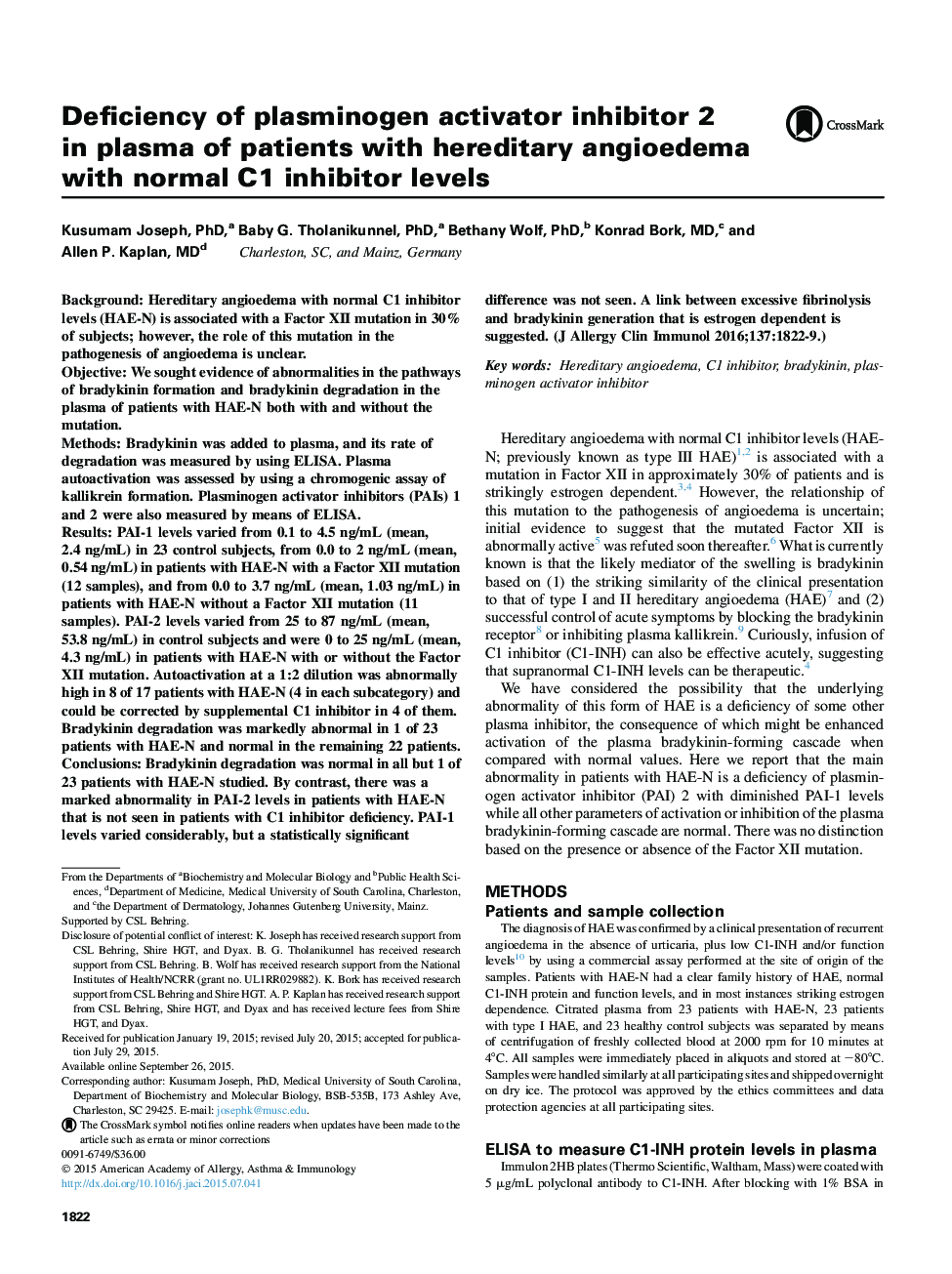| Article ID | Journal | Published Year | Pages | File Type |
|---|---|---|---|---|
| 6062518 | Journal of Allergy and Clinical Immunology | 2016 | 9 Pages |
BackgroundHereditary angioedema with normal C1 inhibitor levels (HAE-N) is associated with a Factor XII mutation in 30% of subjects; however, the role of this mutation in the pathogenesis of angioedema is unclear.ObjectiveWe sought evidence of abnormalities in the pathways of bradykinin formation and bradykinin degradation in the plasma of patients with HAE-N both with and without the mutation.MethodsBradykinin was added to plasma, and its rate of degradation was measured by using ELISA. Plasma autoactivation was assessed by using a chromogenic assay of kallikrein formation. Plasminogen activator inhibitors (PAIs) 1 and 2 were also measured by means of ELISA.ResultsPAI-1 levels varied from 0.1 to 4.5Â ng/mL (mean, 2.4Â ng/mL) in 23 control subjects, from 0.0 to 2Â ng/mL (mean, 0.54Â ng/mL) in patients with HAE-N with a Factor XII mutation (12 samples), and from 0.0 to 3.7Â ng/mL (mean, 1.03Â ng/mL) in patients with HAE-N without a Factor XII mutation (11 samples). PAI-2 levels varied from 25 to 87Â ng/mL (mean, 53.8Â ng/mL) in control subjects and were 0 to 25Â ng/mL (mean, 4.3Â ng/mL) in patients with HAE-N with or without the Factor XII mutation. Autoactivation at a 1:2 dilution was abnormally high in 8 of 17 patients with HAE-N (4 in each subcategory) and could be corrected by supplemental C1 inhibitor in 4 of them. Bradykinin degradation was markedly abnormal in 1 of 23 patients with HAE-N and normal in the remaining 22 patients.ConclusionsBradykinin degradation was normal in all but 1 of 23 patients with HAE-N studied. By contrast, there was a marked abnormality in PAI-2 levels in patients with HAE-N that is not seen in patients with C1 inhibitor deficiency. PAI-1 levels varied considerably, but a statistically significant difference was not seen. AÂ link between excessive fibrinolysis and bradykinin generation that is estrogen dependent is suggested.
